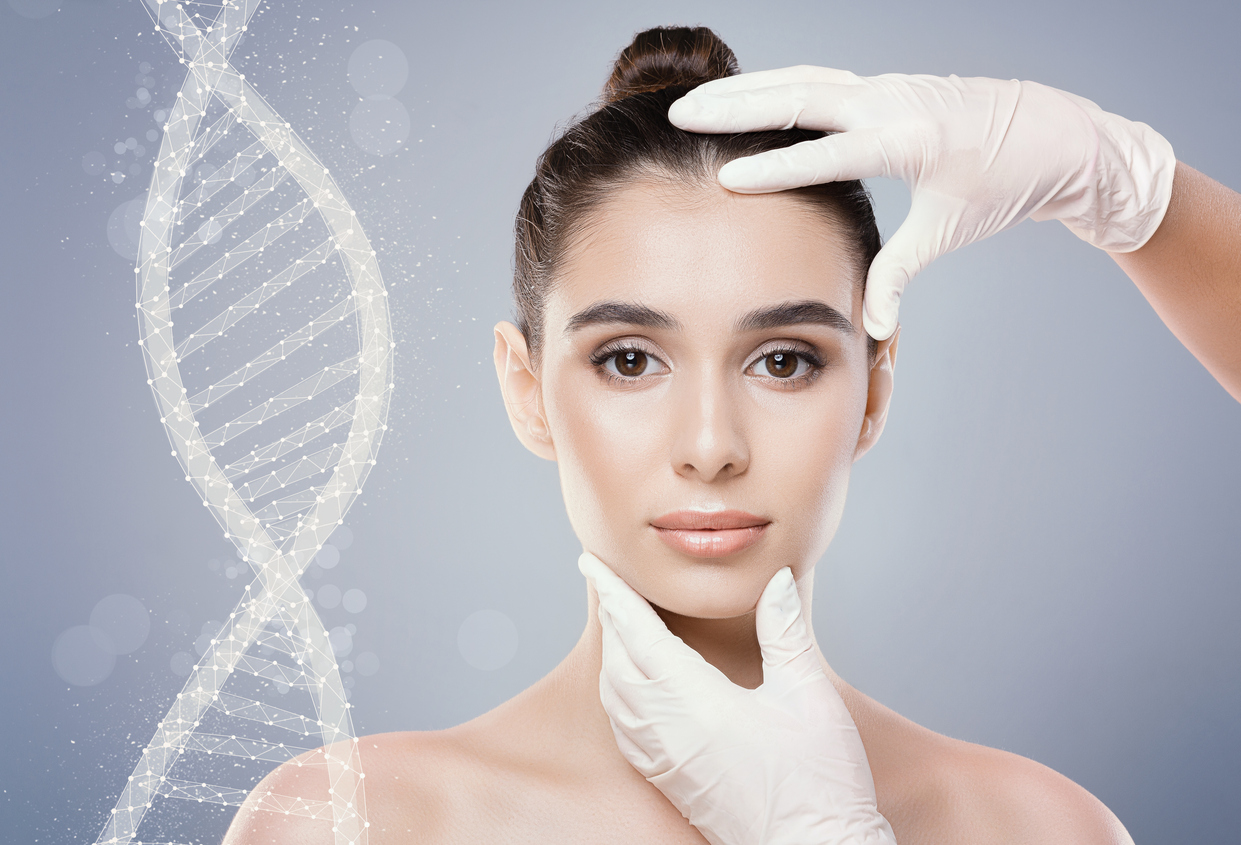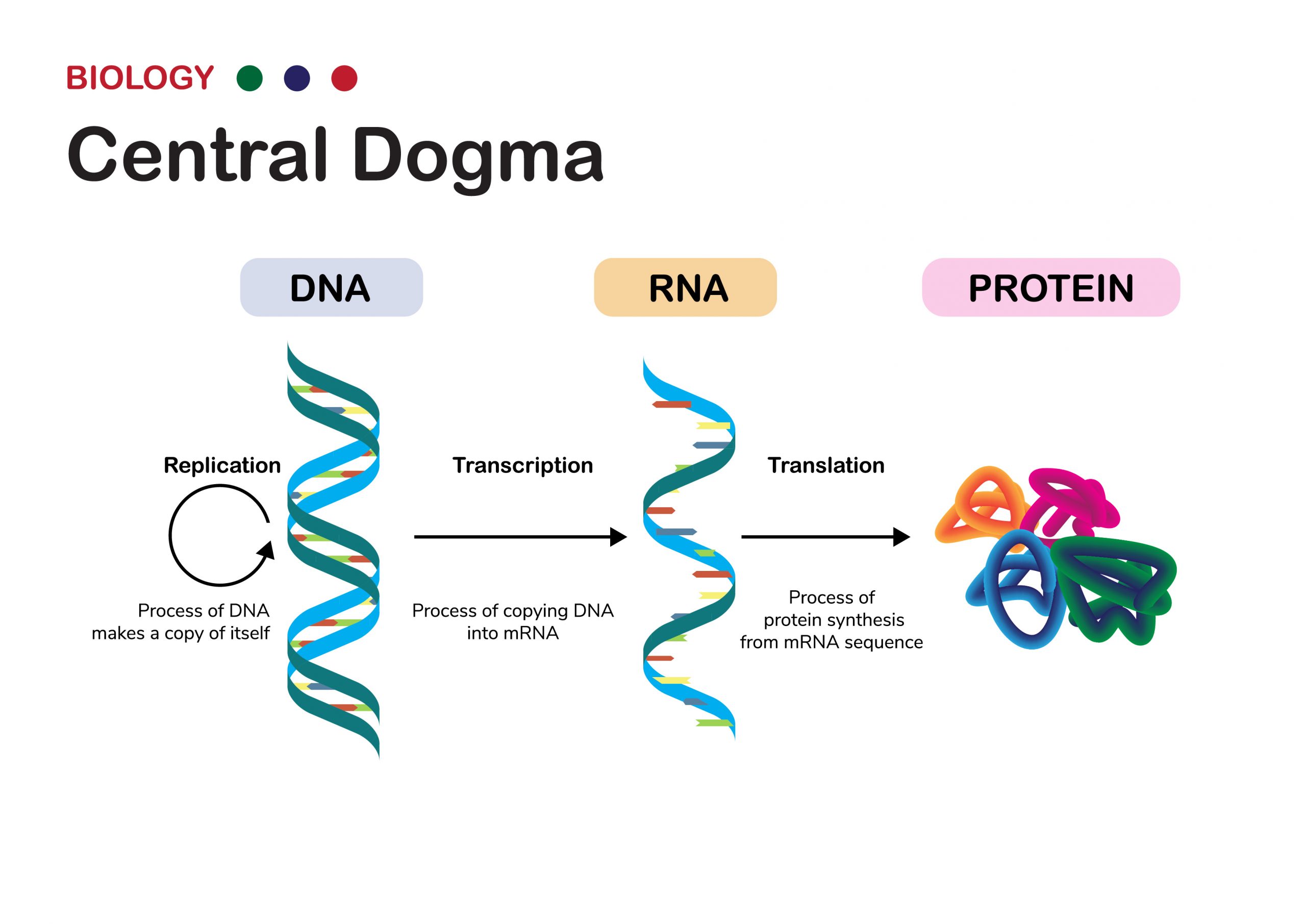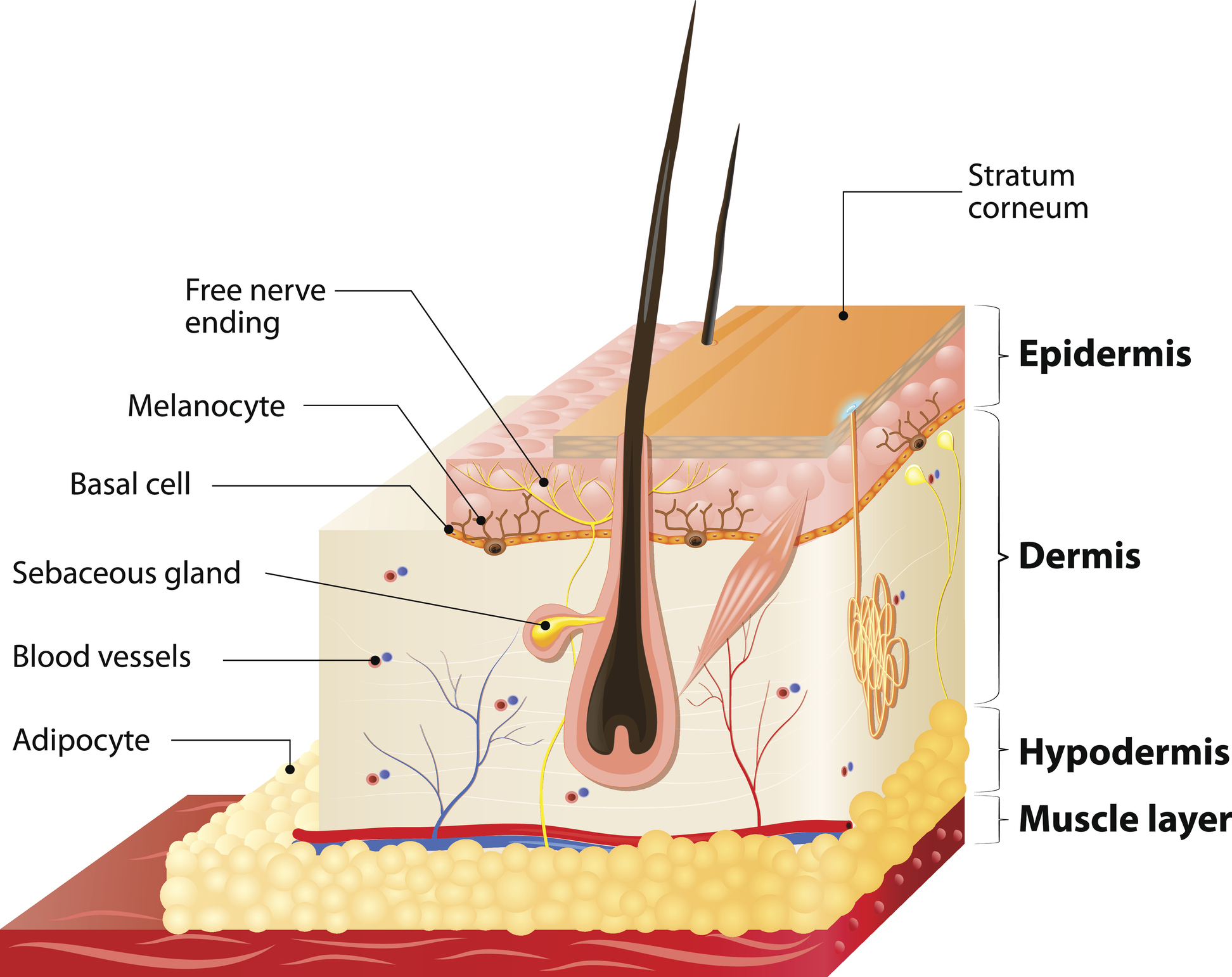
How Your Genes Affect Your Skin and What You Can Do to Help
In the 20th century, we learned more about our bodies than at any other time in history. In 1953, Crick and Watson decoded the structure of DNA, the genetic blueprint of all life. Then in 2003, fifty years later, a global scientific consortium mapped the entire human genome to an accuracy of 99.999 percent. Do we now know the secret to perfect skin?
Not quite. Although genetic research has revealed much about how our bodies work, it’s still an immensely complicated subject. Humans have up to 25,000 different genes, and there’s no single gene responsible for your skin. A combination of genes and other factors such as your skincare routine and environment dictate your skin’s health.
Nevertheless, your genes do play a significant role in how your skin behaves. To understand how, you must first understand what genes are and how they impact genetic traits (the characteristics of your body). You inherit your genes from your family, but your environment can affect those genes – in good ways and bad as you’re about to learn.
What Are Genes and Why Are They Important?
Biology defines the gene as the basic unit of hereditary. They live within your DNA on long structures named chromosomes and tell your DNA what proteins to produce. Your DNA then creates those proteins plus a copy of itself (RNA) that tells those proteins what to do. The way these all interact gets quite complex, but you need only know the basics.
Genes allow traits to be passed from one generation to another, including evolutionarily useful mutations. For example, you inherit physical attributes like skin type (fair or dark), height, and agility. But you might also inherit undesirable traits such as your predisposition towards skin ailments like eczema and psoriasis.
Interestingly (or worryingly!), your genes also play a significant role in your psychology. According to one geneticist, Robert Plomin, your inherited genes could account for as much as 50 percent of your personality and mental abilities. It’s nature, not nurture, Plomin argues, that explains why you excel at Maths but struggle with Art.
But before you blame your ancestors for any shortcomings, remember that no single gene determines a trait. Instead, multiple genes affect each trait, combining with environmental factors such as where you live, how wealthy you are, and your level of education to produce the sum of you today. The same applies to skin health.

How Do Genes Impact Skin Health?
Your genes influence the production of proteins in your body. Since your skin is mostly proteins, each performing a different function, genes play a big part in overall skin health. To understand how, let’s take a quick peek at the top two layers of your skin: the epidermis (surface layer) and dermis (middle layer).
The epidermis is the protective barrier between your skin and the elements. It produces new cells at a rate of 40,000 per day made of the protein keratin. Melanin, another protein, is also present, giving your skin, hair, and eyes colour. Deeper, at the dermis, the proteins collagen and elastin keep your skin strong and supple.
However, these protective proteins are susceptible to environmental damage and cell death (ageing). For example, sunlight (UV rays) can penetrate deep into your skin, causing damage to both the epidermis and dermis. Extreme cold, heat, or pollutants can also disrupt the functions of these proteins and lead to sagging, wrinkles, irritation, and even cancer.
Since your genes are responsible for the production of proteins, you inherit a unique resistance to the effects of ageing and environment from your parents. Darker skin is more resistant to UV damage, for example. But equally, a polluted urban environment will disrupt these defences and accelerate ageing, so what can you do to give your genes a helping hand?

Help Your Genes Do Wonders for Your Skin
Your genes know what they need to do, and although they have preprogrammed limitations, you can help them do their job as best they can. If you avoid genetic disruption by eliminating harmful environmental factors and buffering your skin’s natural defences, your proteins can flourish, leaving your skin looking younger for longer.
First, evaluate your natural defences. Is your skin oily or dry, light or dark, young or old? You need more protection as you age, so bear that in mind. Also, consider your family history – did your parents age well or suffer any skin complaints? Finally, is your environment hot or cold, humid or dry, urban (heavily polluted) or rural (clean)?
Once you understand your genetic strengths and weaknesses, you can then start eliminating factors that might impact your skin’s health or following a skincare regime that mitigates it. Below are some examples of actions you could take depending on different personal and environmental factors.
Hot, dry, and urban
Probably the worst conditions for your skin are hot, dry, and urban. First, your skin will lose moisture due to heat, exposing it to pollutants that disrupt protein synthesis. UV radiation will also damage your skin – badly if you’re fair – allowing pollutants to weaken your genes’ ability to replenish moisture and renew cells.
Avoid the sun as much as possible by wearing a hat and sunglasses and covering exposed skin. Drink plenty of water. Cleanse regularly to remove pollutants but with a gentle formula that won’t strip away sebum, such as our Gentle Cleansing Foam.
Next, use a daily moisturiser with sunscreen and night cream for deeper nourishment. We recommend our Skin Protecting Day Cream and Skin Protecting Night Cream for total protection. You might also consider our Anti Pollution Serum to repair cellular damage.
Hot, humid, and urban
Humidity can be good for your skin since it’ll lose less moisture. However, the water droplets in humid environments might also be a vehicle for urban pollutants, carrying them to your skin and lungs. Pollutants damage your skin and weaken its defences, leaving it susceptible to further damage, so cleanse and moisturise regularly.
When things get especially sticky, try our Balancing Toner to both clear away lingering dirt and pollutants as well as give your skin a spritz of clean moisture.
Cold, wet, and rural
Rural areas suffer less pollution but can still expose your skin to dirt and other impurities whipped up by heavy rain or wind. Cold air also pulls moisture out of your skin and into the air, and although the effect is lesser during wetter months, you must still moisturise morning and evening – especially if you spend a lot of time outdoors.
Cold, dry, and urban
Cold, dry air will suck moisture away from your skin, eroding your skin’s natural defences and exposing it to urban pollutants. To combat this, cleanse regularly and moisturise morning and evening. Again, you might consider our Balancing Toner for a midday boost of moisture and to restore your skin’s defensive barrier.
Your genes have limitations, but once you’re aware of them, you can avoid the risk factors that accelerate undesirable changes in your body, including skin health. Unfortunately, you can’t exercise complete control over your environment, and that’s where your skincare routine will help. Help your genes do their best by protecting your skin’s proteins from disruption and damage by starting with our Natural Beauty Essentials pack.
Love nature, love skin, love you.
![]()
Daniela Korenc | Founder and CEO
DK_GLOWY
